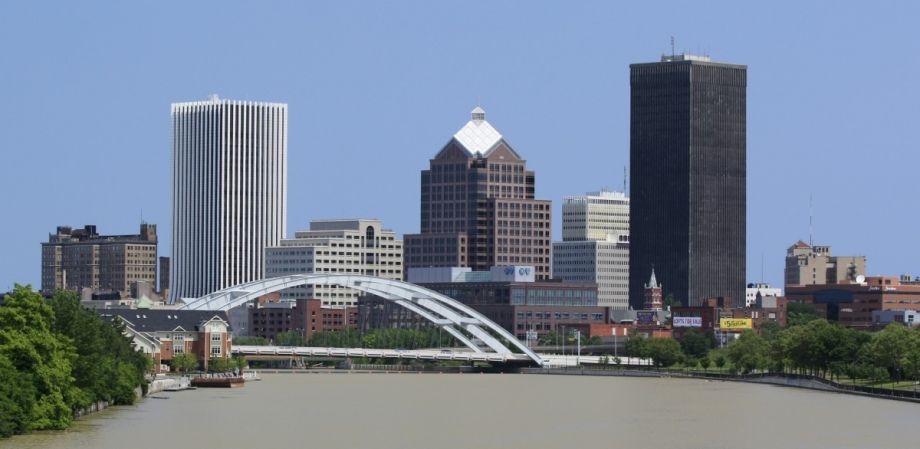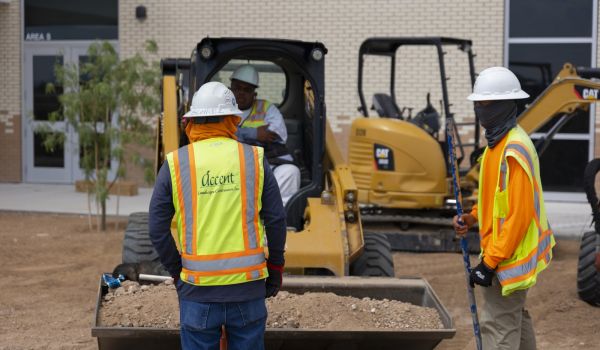A new nonprofit with a goal to support the creation of more worker cooperatives in Rochester, New York, touted its first achievement in April. The nonprofit, the Market Driven Community Corporation (MDCC), announced that a brand-new cooperative, ENEROC, landed a deal to install LED lighting at Rochester General Hospital.
“Creating accessible jobs within our city strengthens our neighborhoods and provides greater opportunities for all its residents,” said Mayor Lovely A. Warren in a press release about the news. “The Market Driven Community Corporation enhances this aim by launching cooperatives like ENEROC that empower our residents to eventually become worker-owners of a competitive business.”
In a city where about 33 percent of households live below the federal poverty line, Warren and fellow co-op supporters want to see an entire network of companies spring up to serve anchor institutions like universities and hospitals. Warren and her Office of Innovation led the way in creating the MDCC over the last year to foster that growth, but the nonprofit is now independent.
ENEROC already has three workers on board and is expected to create up to 14 new jobs in its first year. To start, workers will make $12 to $15 per hour, and once they’re voted in as “worker-owners,” they’ll start building equity in the company. Though there are fewer than 400 worker-cooperative businesses in the U.S., from Oakland to Austin to New York City, many see them as a source of well-paying jobs and a model through which marginalized residents can build wealth.
ENEROC will be a subcontractor in the hospital lighting project, through local company Lumalon, which will also help with training the new workers. Doug Caswell, ENEROC’s business manager, says he’s expecting to hire one to two more people by mid-May for another contract that is currently in negotiations. Those jobs will go to residents from high-poverty neighborhoods.
Caswell and Henry Fitts, director of Rochester’s Office of Innovation, say workers come through RochesterWorks, an employment and training initiative, and community organizations like Bridges to Success and Family Independence Initiative.
“MDCC is bringing a new strategy for economic development to our community,” Fitts says. “This is really a new comprehensive approach that starts with long-term sustainability in mind and it starts with organizations that are rooted in our communities that are not going anywhere.”
To tap into the natural anchor institution customer base, representatives from Rochester Regional Health, University of Rochester, Rochester Institute of Technology and St. John Fisher College are on the MDCC board.
“We know they’re going to be here for decades to come and we can rely on their purchasing power as potential reliable source of demand that we can build businesses around that we know will be here also for years to come and those jobs that they create will be long term,” Fitts says.
Cleveland-based Democracy Collaborative, a national research institute that focuses on equitable economies, worked with the city of Rochester to develop its worker cooperative strategy. Democracy Collaborative helped to start Evergreen Cooperatives, a network of worker co-ops in Cleveland, and that experience offered good lessons for this latest endeavor. A key takeaway: the need to set up a nonprofit like MDCC to facilitate the business development process and serve as a resource for the Rochester business community. MDCC serves to screen business ideas in terms of competitiveness and sustainability. Before ENEROC launched, two other co-op ideas were nixed.
MDCC fits into a larger effort to reduce poverty in Rochester.
The Rochester-Monroe Anti-Poverty Initiative hopes to reduce poverty by 50 percent over 15 years. In 2013, “Special Report: Poverty and the Concentration of Poverty in the Nine-County Greater Rochester Area” revealed that the region was the fifth poorest in the United States among the top 75 largest metropolitan areas, and Rochester itself was second poorest among comparably sized cities in those metro areas.
Melissa Marquez, CEO of Genesee Co-Op Credit Union and an MDCC board member, says she hopes MDCC and startups like ENEROC will help her credit union members and their families, many of whom are people of color, immigrants and refugees, by opening up long-term career paths. Many are also temporary workers.
“They go from temp job to temp job to temp job. They are the lowest is terms in of pay,” Marquez says. “They’re the ones who typically have less in terms of income and wealth.”
In addition to connecting to businesses that might be customers for new co-ops, MDCC will serve as a resource for businesses that are interested in transitioning to a co-op business model. While it doesn’t work for every company, Fitts says, “We’re hoping to build visibility and show that this is an option and about the benefits.”

Deonna Anderson is Next City's editorial director. An award-winning journalist, she has served as a senior editor at GreenBiz and worked with YES! Magazine, KLCC (an NPR affiliate station in Eugene, Oregon), The Lily, Atmos and other media outlets. Anderson is an alumna of the University of California, Davis and the Craig Newmark Graduate School of Journalism at CUNY. She lives in the Bay Area. She was also Next City's 2017-2018 Equitable Cities Reporting Fellow. Follow her on Twitter @iamDEONNA.
Follow Deonna .(JavaScript must be enabled to view this email address)
















